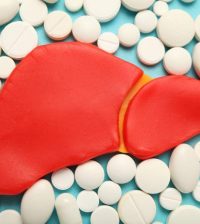- Gene Therapy Improves Vision in People With Inherited Blindness
- Parental Deaths to Guns, Drugs Harmed Nearly 100,000 U.S. Kids in 2020
- Money Worries Top Seniors’ List of Health-Related Concerns: Poll
- Scientists Developing Vaccine Against Present and Future COVID Viruses
- ERs Often Missing Epilepsy in Kids With ‘Non-Motor’ Seizures
- Parents of Infants With Cystic Fibrosis Often Feel Confused, Unsupported: Survey
- Avoid Some ‘Project Watson’ Dog Eye Wipes Due to Infection Danger
- New Test Might Alert Pregnant Women to Preeclampsia Danger
- Combo Therapy May Be Advance Against Liver Cancer
- How ‘Unruly’ Sports Parents Harm Their Kids’ Mental Health
Binge Drinking May Slow Wound Healing


Researchers working with lab mice say they know why people who suffer wounds from accidents or violence while binge drinking may take longer than normal to heal.
The laboratory study replicated a typical pattern of binge drinking — three days of heavy drinking, four days without alcohol, and three more days of heavy drinking. During the binge drinking episodes, the amount of alcohol was equal to about twice the legal limit for driving.
The researchers found that binge drinking led to major reductions in levels of immune system cells that play an important role in healing wounds. These cells, called macrophages, clear away bacteria and debris.
Having lower levels of macrophages means that a wound is more likely to be infected by bacteria, said the researchers from Loyola University in Maywood, Ill.
They also found that binge drinking lowers production of a protein that recruits macrophages to the wound site, and also reduces levels of another beneficial immune-system protein.
“Together these effects likely contribute to delayed wound closure and enhanced infection severity observed in intoxicated patients,” concluded the authors of the study, published online April 1 in the journal Alcoholism: Clinical and Experimental Research.
In the United States, 20 percent to 40 percent of hospitalized patients have drinking problems. Alcohol increases the risk of infections in the hospital, including surgical site infections.
More information
The U.S. National Institute on Alcohol Abuse and Alcoholism has more about binge drinking.
Source: HealthDay
Copyright © 2024 HealthDay. All rights reserved.










